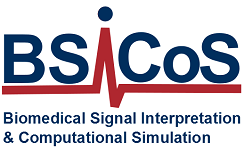-
Proyectos
CNS2022-135366: A neural interface based on peripheral recordings to measure and stimulate cortical rhythms
Fecha de inicio
2023
Fecha de finalización
2025
Coordinador
Jaime Ibáñez Pereda
Funding agency
Agencia Estatal de Investigación
For over 30 years, non-invasive brain stimulation has been used to probe as well as influence brain function in health and disease. Unfortunately, the effects are variable, which limits their practical and therapeutic usefulness. One reason for the variability is that brain responses to stimulation vary according to the ongoing brain activity (or the brain state). A promising proposal to overcome this limitation is to use electroencephalography (EEG) to control brain state-dependent stimulation such that stimulation is only triggered when a specific state is observed. However, there are two important practical problems. One is that we may be unable to record the relevant brain signals with EEG. For example, in many people, it is possible to record activity in the alpha/mu range (~10 Hz) from the motor cortex, yet it is difficult to access more functionally relevant signals at higher frequencies, such as beta and gamma rhythms (>15 Hz). A second problem is that it is technically difficult, if not impossible, to record brain activity with EEG during brain stimulation.
This project aims to provide evidence, analysing MN properties and corticospinal interactions, that MN activity in the beta and gamma bands provides a surrogate measure of the cortical neural drive to the spinal cord that can be used online to drive brain stimulation. Moreover, since MN signals are unaffected by brain stimulation, they provide behaviourally meaningful information during periods of stimulation.
We will develop and use a platform to address two fundamental questions about brain stimulation: (1) can oscillating patterns of stimulation entrain or reset outputs from the cortex; (2) is it possible to increase the effectiveness of these methods by using patterns of stimulation that are frequency and phase locked to ongoing brain oscillations?
